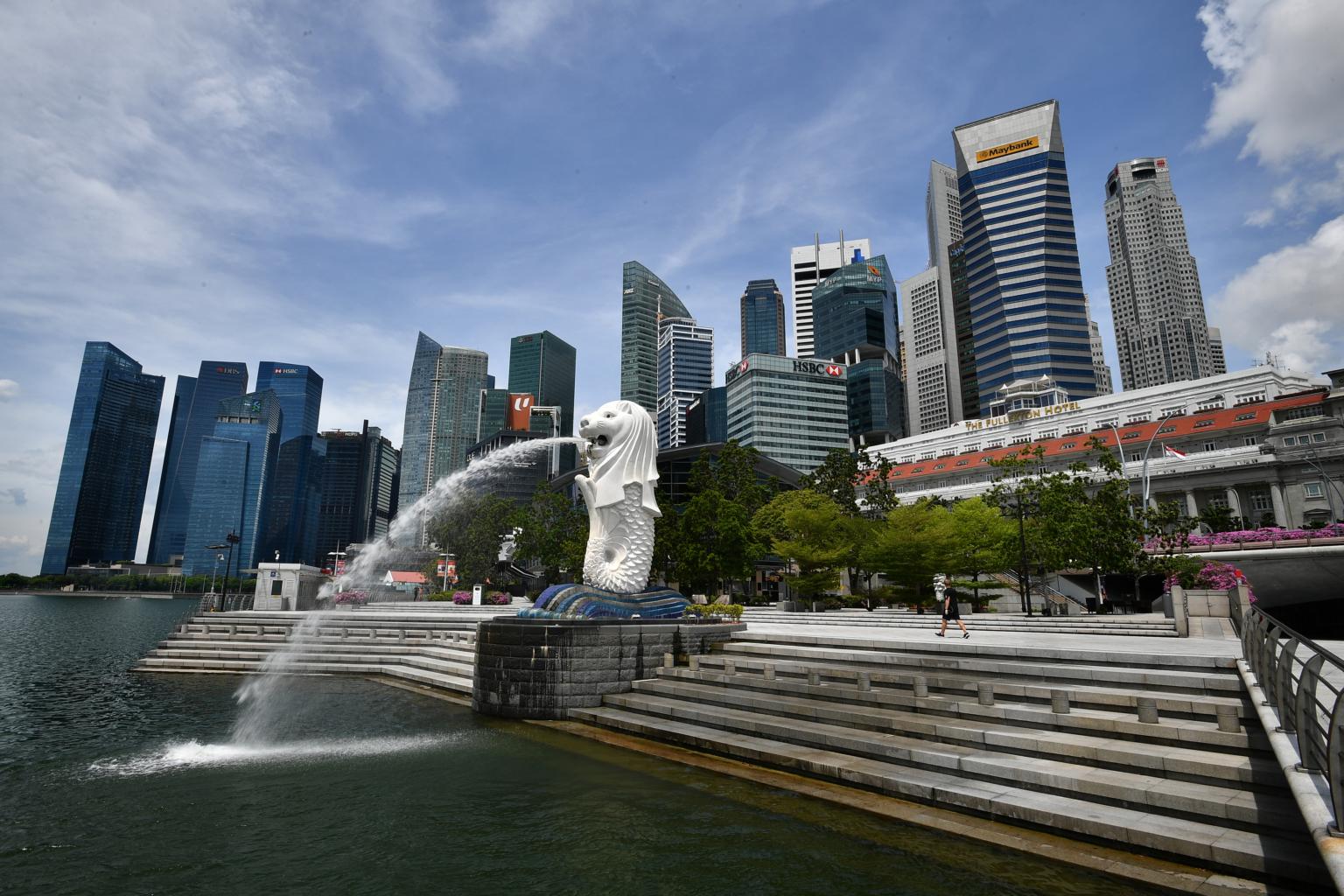IMF gives Singapore economy clean bill of health, says risks to continued recovery 'balanced'
Sign up now: Get ST's newsletters delivered to your inbox

The IMF said that Singapore's recovery is not without risk and potential upside.
PHOTO: ST FILE
Follow topic:
SINGAPORE - Singapore has implemented a bold, comprehensive, and coordinated policy response to cushion the impact of the Covid-19 pandemic, with the risks to its continued economic recovery "balanced", said the International Monetary Fund (IMF).
"Should downside risks materialise, Singapore's ample fiscal buffers can be further drawn upon as a first line of defence," the IMF noted, as it issued the Republic a clean bill of health after an annual review of the economy.
The Government most recently forecast that the Singapore economy will achieve 6 per cent growth or better this year. The IMF said that Singapore's recovery is not without risk and potential upside.
"The uncertainty surrounding the outlook is larger than usual, but risks are balanced," it said in its statement issued on Tuesday (May 11) after its two-week review of the economy.
The April 27-May 11 discussions with Singapore were led by IMF's assistant director, Ms Nada Choueiri.
IMF said that as a financial and trading hub, Singapore is exposed to global financial shocks and threats to globalisation and trade. Near-term developments also critically depend on the path of the pandemic, which is hard to predict, it noted.
"An intensification of the pandemic could derail the recovery. On the upside, a faster-than-anticipated global vaccine roll-out and pandemic containment could accelerate the recovery," the IMF said.
Pointing to Singapore's large national reserves and pro-active policy actions, the IMF said that Singapore entered the pandemic with sizeable buffers and robust policy frameworks.
It noted that while the economic impact of the pandemic was severe, the economy has been recovering since the third quarter of 2020. Singapore's economy shrank 5.4 per cent in 2020 after a record contraction in the first half-year.
"The authorities have responded appropriately with a bold, comprehensive, and coordinated policy response that protected lives and livelihoods, and stabilised domestic financial conditions. This response has helped financial markets stabilise and employment recover, with growth returning to positive territory before end-2020," said the IMF.
It also gave a vote of confidence to Singapore's "more targeted" fiscal support in Budget 2021 and welcomed the Government's plans to fund new major long-term infrastructure projects through borrowing under the proposed Significant Infrastructure Government Loan Act (Singa).
"As the recovery proceeds, the authorities' shift from broad emergency relief to more targeted fiscal support in 2021, combined with skills upgrades and job creation initiatives to facilitate resource reallocation across sectors, is welcome," it said.
However, the IMF said that in view of the "substantial uncertainty", targeted policy support should remain in place until the recovery is firmly entrenched, with Singapore having "ample fiscal space to deploy additional policy support" if downside risks materialise.
The IMF believes fiscal policy should continue to play the role of the first line of defence, while noting that the accommodative monetary policy stance of Singapore's central bank is appropriate.
The Monetary Authority of Singapore (MAS) has held on to its easing stance since April 2020, in the face of weak inflation, to support the economic recovery.
Inflation is expected to pick up as domestic demand recovers but is likely to remain contained given continued slack in the economy, IMF said.
Meanwhile, the current account surplus - the gap between import payments and export proceeds - is projected to decline as the recovery in domestic demand drives up imports, even as exports continue to rise alongside growing external demand, it noted.
Still, Fitch Solutions Country Risk and Industry Research report earlier this year forecast that the Republic will clock a current account surplus of 19.6 per cent of its GDP in 2021, which would mark the largest surplus in more than a decade and a significant widening from its own estimate of 17.8 per cent for 2020.
The IMF said that Singapore's banking sector has weathered the pandemic, helped by MAS liquidity and credit support measures as well as the Government's provision of adequate, temporary, and increasingly targeted support to corporates.
"As the pandemic evolves, financial support measures should remain time-bound and targeted to adversely impacted sectors," it said.
The IMF also welcomes Singapore's efforts to transition towards a smarter, greener, and more inclusive economy post-pandemic.
"The authorities' actions in these areas include initiatives to accelerate digitalisation and innovation to boost productivity, investment in climate-resilient infrastructure to prepare for a resilient and prosperous future, and intensified training and re-skilling to mitigate disruptions from technological innovation and population ageing."

